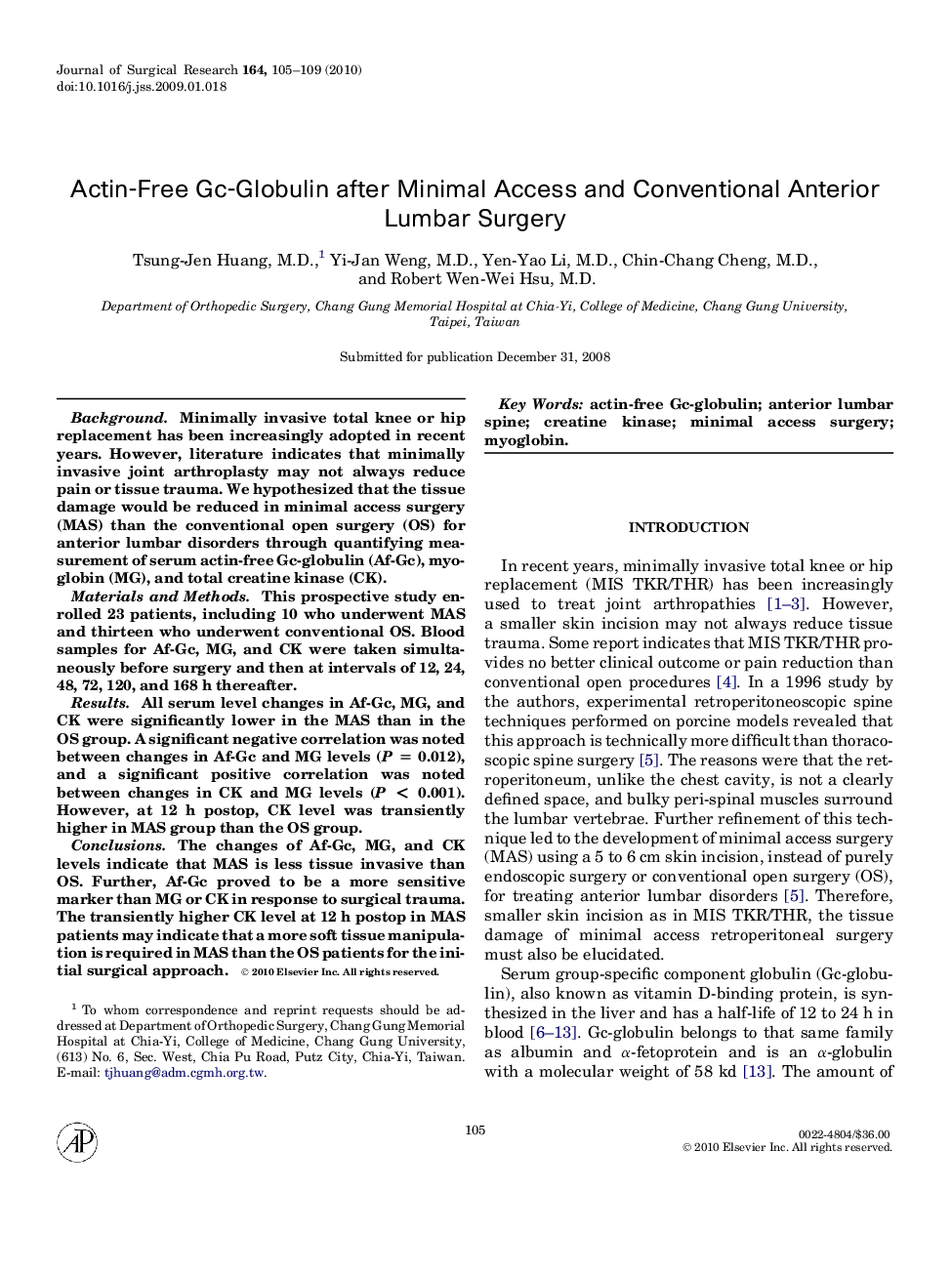| Article ID | Journal | Published Year | Pages | File Type |
|---|---|---|---|---|
| 4302613 | Journal of Surgical Research | 2010 | 5 Pages |
BackgroundMinimally invasive total knee or hip replacement has been increasingly adopted in recent years. However, literature indicates that minimally invasive joint arthroplasty may not always reduce pain or tissue trauma. We hypothesized that the tissue damage would be reduced in minimal access surgery (MAS) than the conventional open surgery (OS) for anterior lumbar disorders through quantifying measurement of serum actin-free Gc-globulin (Af-Gc), myoglobin (MG), and total creatine kinase (CK).Materials and MethodsThis prospective study enrolled 23 patients, including 10 who underwent MAS and thirteen who underwent conventional OS. Blood samples for Af-Gc, MG, and CK were taken simultaneously before surgery and then at intervals of 12, 24, 48, 72, 120, and 168 h thereafter.ResultsAll serum level changes in Af-Gc, MG, and CK were significantly lower in the MAS than in the OS group. A significant negative correlation was noted between changes in Af-Gc and MG levels (P = 0.012), and a significant positive correlation was noted between changes in CK and MG levels (P < 0.001). However, at 12 h postop, CK level was transiently higher in MAS group than the OS group.ConclusionsThe changes of Af-Gc, MG, and CK levels indicate that MAS is less tissue invasive than OS. Further, Af-Gc proved to be a more sensitive marker than MG or CK in response to surgical trauma. The transiently higher CK level at 12 h postop in MAS patients may indicate that a more soft tissue manipulation is required in MAS than the OS patients for the initial surgical approach.
